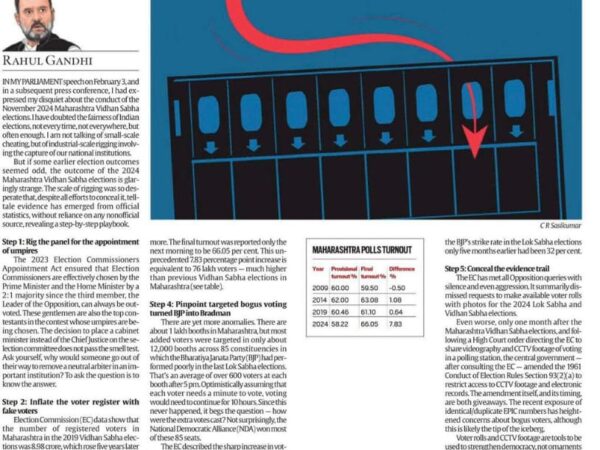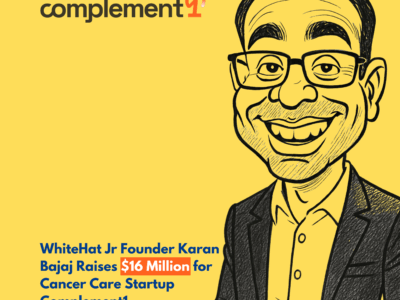
There comes a point in most reflective lives when you begin to notice patterns. In people. In behaviour. In consequences. You observe, interact, experience, and then you generalise. You start creating small internal rules to help you navigate the world. At first, they are simple survival tools. But over time, they become frameworks. And then, quietly, they become doctrine.
The smarter you are, the more coherent these doctrines seem. Intelligence, left unchecked, has a gift for wrapping anecdote in logic. You are not testing your conclusions. You are reinforcing them, with flair. Eventually, your internal logic appears so consistent, so elegant, that you begin to mistake it for universal truth.
But most of these so-called truths are built in closed loops. You meet people like yourself. You live, work, think, and react in familiar environments. Your rules continue to work, not because they are right, but because they are rarely challenged.
This is the illusion of predictive clarity: the belief that you understand human nature when all you understand is your corner of it.
Occasionally, someone stumbles beyond that corner. Not always by design. Sometimes by accident. They encounter a wider set of human experiences, with different cultures, temperaments, and assumptions. And from this variance, they build more resilient, more universal rules. Principles that apply across contexts, not just within curated bubbles.
These individuals appear unusually insightful. Leaders. Thinkers. People who just seem to get it. But more often than not, what you are witnessing is not genius. It is exposure.
And exposure does not always require geography or privilege. It requires process.
Here is the good news. There is a way to simulate this exposure. To engineer the same depth of understanding. It is not glamorous. It is not quick. But it is repeatable.
Let us call it a thinking loop. Or, if you prefer a metaphor, the Three-Sandwich Hack.
It consists of three acts: reading, arguing, and writing. Each one is enclosed between two slices of thought. Think before. Think after. That is the sandwich. And when done properly, these three sandwiches form a feedback loop that builds real, transferable intelligence.
Let us take a closer look.

⸻
1. Think. Read. Think Again.
Do not read to finish. Do not read to look clever. Read to understand.
Begin with thought. What do you know? What do you assume? What are you hoping to challenge or confirm?
Then read. Not performatively. Not impatiently. Let the writer take you somewhere unfamiliar.
And once you have read, reflect. What stayed with you? What provoked discomfort? What made more sense than you wanted to admit?
Reading is not passive input. It is an encounter. Think before. Think after.
⸻
2. Think. Argue. Think Again.
Now take what you have read and speak it into the world. Find someone who is not afraid to disagree with you. Not to win, but to sharpen.
Test your thinking. Say it aloud. Let it breathe. Let it bruise.
The goal here is not to dominate. It is to discover the limits of your understanding. Argument, when done civilly, empathetically, and seriously, is one of the fastest ways to realise where your logic is strong and where it is wishful thinking.
Then think again. Reassemble. Reframe. Repair.
⸻
3. Think. Write. Think Again.
And then write. Not to impress. To clarify.
Nothing exposes the vagueness of your thinking like the demand for precision. When you write, you see where your argument collapses, where your conclusions are lazy, and where you have borrowed someone else’s voice without even noticing.
And again, once written, think again. Writing is not the final step. It is another diagnostic tool.
Then, if you are being honest, you will realise it is time to go back to reading.
⸻
The Loop.
These three sandwiches — reading, arguing, and writing — are not phases. They are not a linear path to wisdom. They form a loop. Recursive. Lifelong. You go through them again and again, with each cycle adding layers of subtlety and strength.
You read, only to realise how little you understood.
You argue, only to find cracks in what seemed solid.
You write, only to return humbler and better to the beginning.
This is the hack. This is how intelligence deepens.
⸻
Even AI Uses This Hack.
It may sound too human, but here is the strange truth. Even artificial intelligence learns this way.
Large Language Models, like the one writing this, are built on the same fundamental loop. First, they read. Not a few books, but vast libraries. Terabytes of text. Encyclopaedias. Literature. Academic papers. Internet discussions. Manuals. Blogs. Essays. Dialogue. This is their training data. Without it, the system knows nothing.
Then they process contradiction. They identify ambiguity. They simulate argument. Every time the AI encounters conflicting viewpoints or multiple expressions of the same concept, it runs internal calculations to resolve or weigh them. This is the machine’s version of debate.
And finally, they write. They generate output. Language. Responses. Interpretation. Ideas. This is the only part the public sees. But it is the result of a long, structured feedback loop.
In other words: Think. Read. Think again. Think. Argue. Think again. Think. Write. Think again.
Even machines understand that input alone is not intelligence. It is the recursive cycle — the act of returning, revising, and rethinking — that turns raw information into usable insight.
The difference is that the machine does not confuse speed with wisdom. It does not assume exposure means understanding. It follows a slow, structured process. And so should you.
You do not need the scale of a machine. You need the discipline of its method.

⸻
Why This Matters Now.
In a world increasingly engineered for distraction, this loop is a form of resistance. Most digital platforms are not designed to teach you how to think. They are designed to trigger what evolution hardwired into us: the Four Fs — Fighting, Fleeing, Feeding, and Fornicating. If you are constantly reacting, you are not reflecting. If you are always swiping, you are never thinking.
It is not that content is bad. It is that unstructured content consumption will never make you a better thinker. You cannot scroll your way to wisdom.
The Three-Sandwich Hack is a system. It builds patience, perspective, and precision. It teaches you to think before you absorb, to question what you think you know, and to rebuild your mind with clarity.
⸻
Final Thought.
None of this is glamorous. It is slow. It is unphotogenic. It requires discipline.
But it works.
If you read with thought, argue with humility, and write with honesty, and if you keep looping through those three, you will eventually build a mind worth trusting. A mind that cannot be swayed by noise. A mind that knows how to learn, unlearn, and begin again.
Even the machines are doing it.
Because thinking works better than reacting.
So if you still believe your mind is worth more than an algorithm, act like it.


















